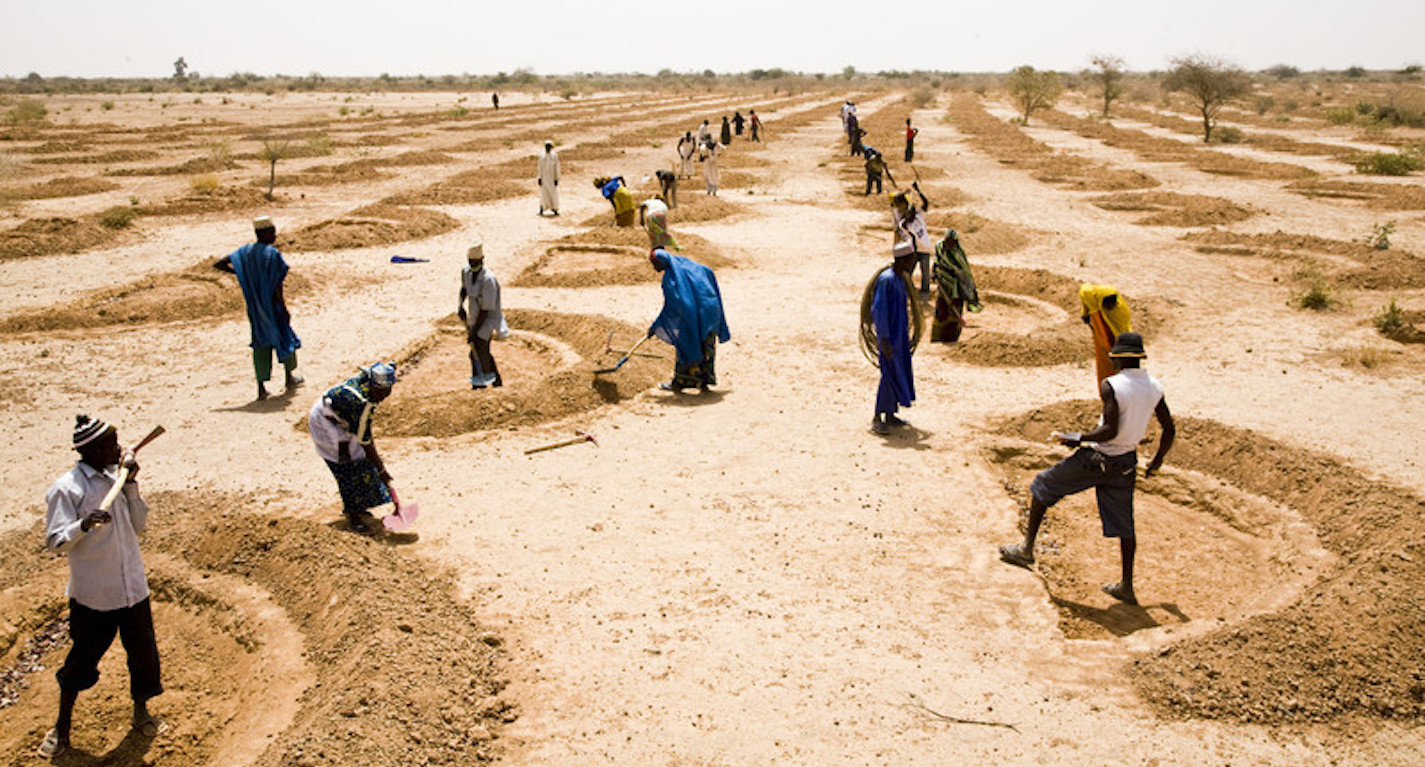Information works: The impact of training on the adoption of environmental technologies by farmers
Featured on VoxDev

Photo credit: Fatoumata Diabate/Oxfam
Approximately 50% of farmland in Sahelian West Africa suffers from nutrient depletion and poor soil fertility (Scherr 1999). Small-scale farmers in West Africa have traditionally dealt with poor rains and degraded soils by shifting into extensive agriculture, in other words, by bringing more land into production. However, high population density has resulted in shorter fallow periods, and reduced the availability of arable land (Warren et al. 2001), with climate change exacerbating these challenges.
Sustained yield improvements in the Sahel therefore require intensive agricultural practices to reduce farmers’ exposure to rainfall risk, namely, techniques that increase the level and duration of water stored within the soil and replenish soil nutrients. Rainwater harvesting techniques, which capture rainfall and reduce runoff, are a compelling option. Over the past few decades, millions of dollars have been spent to encourage the adoption of rainwater harvesting techniques.
Despite these investments, sustained levels of adoption of rainwater harvesting techniques remains low (Mekdaschi Studer and Liniger 2013; author’s calculations). ATAI-affiliated researchers Jenny Aker and Namrata Kala studied how different interventions, including training and cash transfers, affect adoption of one rainwater harvesting technique – demi-lunes – in rural Niger. They found that a simple training increased adoption of demi-lunes by over 90%, with persistent improvements in agricultural production and land use.

